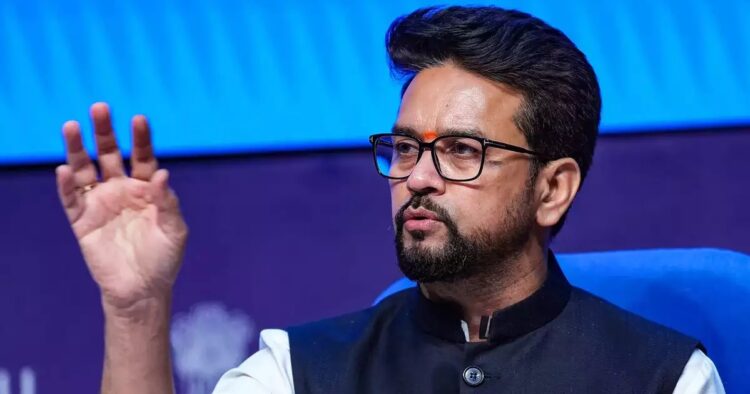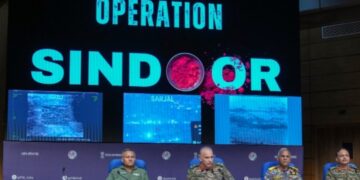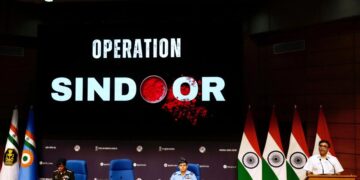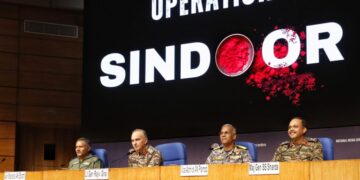Recently, Union Minister Anurag Thakur launched a scathing attack on the Congress party, alleging that their manifesto is influenced by foreign forces. Thakur claimed that the Congress aims to divide the nation based on caste and region.
He accused the party of having ties with what he termed as the ‘Tukde-tukde’ gang, suggesting a fragmentation agenda.
Thakur specifically pointed out elements in the Congress manifesto, asserting that foreign influences were evident in the party’s policies. He claimed that these forces aimed to redistribute children’s property to Muslims, dismantle the nation’s nuclear arsenal, and sow divisions among communities based on caste and region.
Thakur urged the public to choose between Congress’ alleged divisive agenda and Prime Minister Modi’s vision of a united and prosperous Bharat.
Moreover, Thakur accused the Gandhi family, prominent figures in the Congress party, of enacting laws to suit their personal interests. He cited an instance where he claimed that former Prime Minister Rajiv Gandhi abolished a law that would have impacted his own property holdings.
Thakur also implied that Rahul Gandhi, another member of the Gandhi family, harbored intentions of redistributing wealth unfairly.
Responding to Thakur’s allegations, Chairman of Indian Overseas Congress Sam Pitroda emphasized the need for discussions on wealth redistribution policies. Pitroda cited the example of inheritance tax in the United States, suggesting it as a point for consideration in Bharat.
However, he clarified that his remarks were not indicative of any official policy stance of the Congress party.
Pitroda’s comments stirred controversy, prompting him to clarify that he merely used the example of the U.S. inheritance tax in a casual conversation and that it should not be misconstrued as a proposal for Bharat.
He expressed surprise at the reaction from the Bharatiya Janata Party (BJP) and the media, reiterating that his remarks were not intended as a policy endorsement by the Congress.
Responding to Pitroda’s statements, the Congress officially distanced itself, asserting that his views did not represent the party’s stance at all times. This move aimed to clarify the party’s position amidst the ongoing debate surrounding wealth redistribution and alleged foreign influences on its policies.
The exchange of accusations and clarifications between the Union Minister, Congress leaders, and Pitroda underscores the heated political atmosphere in Bharat, especially in the lead-up to elections or major policy discussions.
As both sides continue to assert their positions, the public remains engaged in evaluating the merits of their arguments and the implications for the country’s future direction.

















Comments